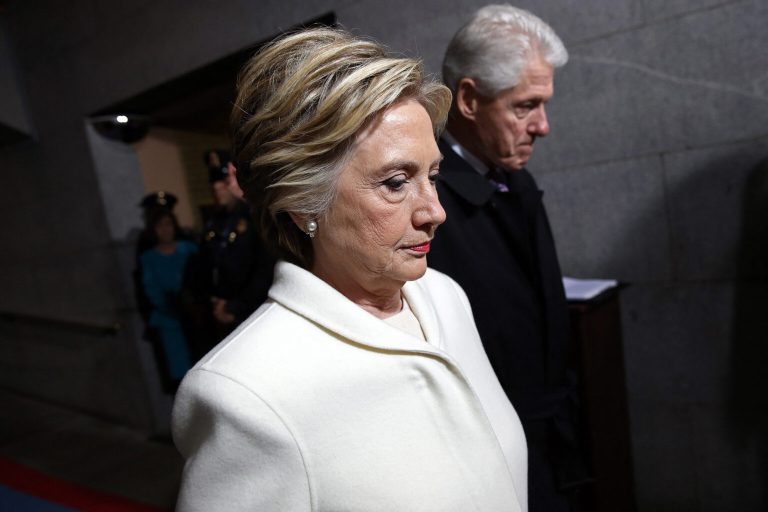
There are indications that oil companies operating in the country may be evading gas flare penalty, and this development has led the country to losing as much as N258b yearly, which would have accrued after a review of fiscal penalty, fine of $3.50 per 1, 000 standard cubic feet (scf) of gas flared.
This development is fueled by growing under-reporting of flared gas across fields, as evidenced by discrepancies in figures reported by different agencies and independent bodies, which are monitoring the menace in the Niger Delta.
Facility for Oil Sector Transparency and Reform in Nigeria (FOSTER) and the African Initiative for Transparency, Accountability and Responsible Leadership (AfriTal), recently alleged that oil producers since 2018 have been deliberately under-reporting the level of gas flare.
Indeed, figures from the Nigerian National Petroleum Corporation (NNPC), which operates joint venture deals with most of the oil companies were also under-reported, as a World Bank-supported Gas Flare Tracker (GFT) reported figures almost double of what the state-owned oil company currently reports.
While GFT has been handed over to the National Oil Spill Detection Response Agency (NOSDRA), its satellite-generated data is reportedly safe from manipulation as it collects information on gas flare in oil fields across Nigeria every 24 hours, and sums them up every month.
For instance, the NNPC’s data in 2018 showed that Nigeria flared 282 billion standard cubic feet (scf) of gas, a 10 percent of the total gas produced in the country within the period under review, but GFT reported 472.4bcf of gas for the same year.
Similarly, while the Nigerian Gas Flare Commercialisation Programme (NGFCP) showed that Nigeria flared 325bscf of associated gas in 2019, representing 11 percent of gas produced in the country, GFT recorded 475bscf as gas flared for the same year.
The implication is that about 190 bscf was not reported in 2018, while 150bscf was under-reported in 2018. With a fine of $3.50 per 1, 000 scf, as much as $665m (N257.9b) would have been paid in 2018, if the guidelines for the 2018 reviewed fiscal penalty, which moved payment from 50 cent to $3.50 per 1, 000 standard cubic feet (scf) were applied. A development counted as tax evasion by some stakeholders.
While the situation is projected to worsen challenges faced by the Federal Government’s attempt to ensure zero gas flaring latest by 2020, the Associated Gas Re-Injection Amendment Decree Seven of 1985 introduced a two kobo per million standard cubic feet (mscf) as punishment for gas flaring, which was later increased to 50 kobo in 1990. It was N10 per Mscf in 1998 as a Ministerial Directive in 2011 proposed $3.50 per 1000 scf, but became effective in 2018.
Coming at a time that the Federal Government said that gas flare penalty payment by oil and gas companies in would increase to N103.51bn this year, little did the government know that it was allegedly being swindled by producers operating in the country.
An expert with the Stakeholder Democracy Network (SDN), Jesse Martins Manufor had said: “Since 2013 when the GFT was launched, data from the tracker significantly matched that of the volumes declared by the oil and gas companies in the records of NNPC up until 2017. However, there has been a significant variation in volumes in the NNPC’s 2018 and 2019 data as compared to the GTF.
“This might be as a result of gas flare regulations introduced in 2018, which impose an increase in the fines to be paid for gas flaring. Prior to 2018, it made more sense to flare and pay a penalty of 50 Cent because there was no stringent enforcement. However, with the increase in the penalty to $3.50 for companies producing more than 10, 000bpd, the new regulation might be responsible for the discrepancies,” he suggested.
An energy expert, Madaki Ameh, who said the development amounts to tax evasion by the IOCs, noted that the companies were deliberately adopting environmental standards different from what obtains in their countries, or elsewhere in the world where they operate. This, he said, was due to the country’s lax and compromised regulatory environment.
He insisted that loses by the government from the crime remains huge, adding that, “tax evasion has always been a crime. The Federal Internal Revenue Services (FIRS) must set up an oil and gas industry-specific crack team to monitor infractions and bring perpetrators to book in line with extant laws.”
While a series of report by Nigeria Extractive Industries Transparency Initiative (NEITI) had in the same vein alleged discrepancies in extracted crude oil, as well as revenue remittances by oil firms, a foremost environmental activist and Director of Health of Mother Earth Foundation, Nnimmo Bassey, insisted that the poor reporting of gas flare was more of an unwillingness to measure the amount of gas being flared, rather than an inability.
Bassey stressed that there were perverse factors inhibiting the measurement of the amount of oil and gas produced, and the amount of gas flared as well, adding that it was regrettable that the NNPC holds the biggest shares in the various JV agreements, yet the oil majors are the operators and they determine the production cost of oil in Nigeria.
“Is it surprising that production cost of a barrel of oil in Nigeria is one of the highest in the world? The production costs go to the producers. The JV shares the profit. Gas flaring fines are paid by the JV partners. Do you see the perversity in the arrangement? It is impossible for the government to come down hard on the companies. They are inextricably connected in the business.
“That incestuous relationship has to be dissolved and reorganised through appropriate legislation. Making such a law has so far been impossible, possibly due to vested interests. The law must determine that the producer will pay such fines outside any regime that affects the revenue accruing to the other JV partners,” he said.
For the National Coordinator, National Coalition on Gas Flaring and Oil Spills in the Niger Delta (NACGOND), Dr. Edward Obi, the reason why there are discrepancies in the figure of gas flare is because oil companies perhaps, are unwilling to pay the new penalty rate.
He said: “Now we noticed a huge drop the in the amount of gas flare in the data that is supplied from the time that government reviewed this penalty to now. And the discrepancies is so much that they are reporting just about half of what they are flaring, which is unfortunate. I think they are trying to avoid the penalty cost. But the Department of Petroleum Resources (DPR), which should be on the side of government should not accept those figures and present them to government like that,” he said.
Obi observed that whereas human beings can be influenced by their personal interest in the oil company, reports from a satellite that is completely detribalised, depoliticised, dissocialised, and that is as abstract and objective as possible should be the best method to measure data of gas flared from the Niger Delta.
“The government should question the DPR, which is not giving it accurate figures of the gas flare. The government should ask, ‘why are you accepting what the oil companies present to you? Why are you not confirming if this is same as what an independent satellite is confirming or not? There should be somebody independent in government who should be able to raise those questions,” he said.
He wondered why the DPR (if it is really working independently for the Federal Government), has not deemed it appropriate to investigate discrepancies in the Gas Flare Tracker data and those now being provided by the oil companies.
With the drop in the global price of oil due to the COVID-19 pandemic, Obi urged the Federal Government and the Ministry of Finance and everybody else that wants money into the federation’s coffers to demand that oil companies pay government what is due to her. (The Guardian)









67096 379909This really is a appropriate blog for would like to find out about this topic. You realize a great deal its almost challenging to argue along (not that I personally would wantHaHa). You really put the latest spin with a topic thats been discussed for a long time. Amazing stuff, just wonderful! 228606
298618 62666Write more, thats all I have to say. Literally, it seems as though you relied on the video to make your point. You definitely know what youre talking about, why throw away your intelligence on just posting videos to your blog when you could be giving us something enlightening to read? 906604
428040 13820Very good post. I previousally to spend alot of my time water skiing and watching sports. It was quite possible the very best sequence of my past and your content material kind of reminded me of that period of my life. Cheers 241226
695569 78354obviously like your web-site but you have to check the spelling on several of your posts. 707808